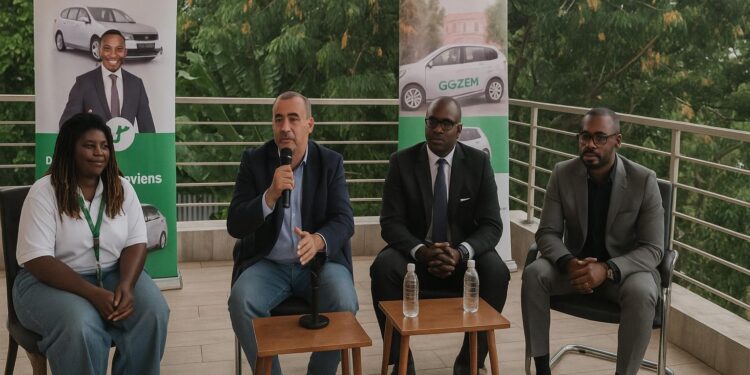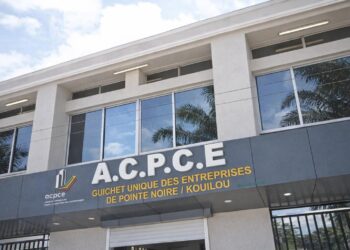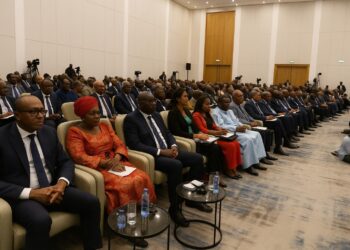Brazzaville sets the stage for Gozem
On 5 November, Africa-born Super App Gozem will officially roll out in Brazzaville, marking its first foothold in the Republic of Congo and the next milestone in a francophone network that already links Togo, Benin, Gabon and Cameroon with more than 7,000 registered vehicles.
Co-founder Raphael Dana told journalists the launch responds to a “pan-African vision of a service built on concrete local needs”, signalling confidence in the capital’s 2-million-strong consumer base and the government’s stated ambition to boost the digital economy under the 2022-2026 National Development Plan.
Market fundamentals attract the Super App
Informal ride-hailing already thrives in Brazzaville’s hectic corridors, yet taxi wait times and opaque pricing still hamper mobility. Gozem’s algorithms seek to convert that friction into value, promising real-time geolocation, electronic fare estimates and ride tracking—features that motivate investors chasing Africa’s USD 7 billion urban transport market (World Bank, 2022).
Operation lead Manfred Tomegah said the start-up will debut with 1,700 vehicles and scale to 2,000 “within months,” leveraging partnerships with local dealerships for vehicle procurement and with insurers for fleet coverage, an approach the company has refined across its previous West African markets.
Portfolio of four on-demand services
From day one, the app will host Classic Taxi, Premium Taxi, Delivery and Car-Rental options. Each vertical runs on a single wallet, allowing residents to book rides, send parcels or secure hourly drivers without juggling multiple applications, a convenience designed to spur early adoption across income segments.
A welcome-bonus campaign promises 50 percent discounts on the first two trips and a referral programme that rewards users with in-app credits—tactics that lifted downloads by double digits in Lomé and Cotonou, according to internal performance dashboards shared by the company.
Synergies with legacy taxis and drivers
Gozem executives emphasise complementarity rather than displacement, noting that Brazzaville’s green-and-white taxis will become ‘Champions’ once they integrate the platform. The model preserves existing licence plates, allows cash and digital fares, and equips drivers with route analytics intended to raise daily revenues by up to 30 percent.
Stakeholder dialogues with the municipal transport department resulted in a memorandum of understanding that frames data sharing, driver training and consumer protection protocols. City officials see the agreement as an incremental step toward modernising an industry that still moves 80 percent of passengers through informal arrangements.
Digital payments backbone and inclusion
The Super App embeds a multi-rail payment stack: mobile money wallets, bank cards and a proprietary cash-to-credit interface piloted with two domestic banks. By integrating alternative rails, Gozem aligns with the Central Bank of Central Africa’s objective to push electronic transactions above 35 percent of GDP by 2025.
Financial inclusion potential also appeals to development financiers. Talks are underway with impact funds to co-create driver lease-to-own schemes that bundle micro-insurance and savings accounts, mirroring arrangements that enabled over 1,000 Togolese drivers to purchase vehicles outright in three years (Gozem impact report, 2023).
Regulatory climate and public policy momentum
Congo-Brazzaville has updated its Digital Code and created a single-window registration process for start-ups, reducing incorporation times to under ten days. These reforms, praised by the African Development Bank, support Gozem’s licensing while sending a broader signal to venture capitalists watching the Central African tech corridor.
Transport regulations remain largely municipal, yet the Ministry of Transport has indicated that digital platforms may soon be included in upcoming decrees on ride-hailing data standards. Early compliance could position Gozem as a reference operator once definitive national guidelines are issued.
Growth trajectory and regional outlook
Management targets breakeven in Brazzaville within 18 months, assuming an average of six trips per vehicle per day at a 22 percent commission rate. Based on similar trajectories in Lomé, analysts at Emerging Capital View estimate annual gross merchandise value could exceed USD 18 million by 2025.
Expansion to Pointe-Noire, the country’s economic hub, is slated for the second quarter of 2024, pending completion of a pilot with port-logistics actors. The coastal city’s petroleum supply chain offers synergies for Gozem’s delivery arm, potentially diversifying revenue beyond passenger mobility.
Within Central Africa, competition is limited to smaller apps focused on motorcycle taxis, giving Gozem a first-mover advantage in the four-wheel segment. The company’s proprietary Super App architecture could eventually layer grocery, healthcare and micro-lending services, replicating WeChat-like ecosystems popularised in Asia.
Investors are taking notice. Gozem closed a USD 10 million Series A extension in April, with participation from AAIC, Cathay AfricInvest Innovation and the IFC Startup Catalyst programme. Company executives signal that a Series B dedicated to regional scale-up could open in mid-2024.
Management also pledges to offset fleet emissions through local reforestation schemes aligned with Congo’s climate commitments.












































